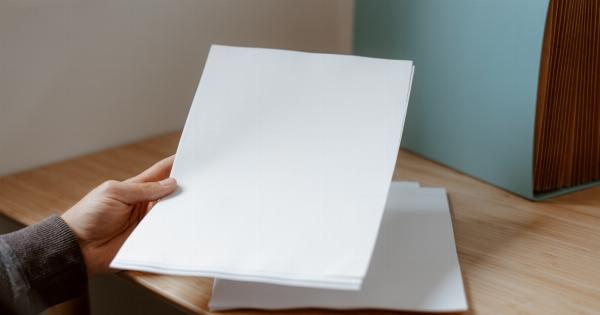Having a comfortable and clean bed to sleep on is essential for a good night’s sleep. Your bedding, including pillows, sheets, and mattresses, plays a significant role in ensuring your comfort and overall sleep quality.
Over time, however, bedding loses its effectiveness and may need to be replaced. But how do you know when it’s time to bid farewell to your trusted bed companions?.
Signs of an Aging Mattress
Your mattress is perhaps the most crucial component of your bedding. It directly impacts your spinal alignment, pressure points, and overall comfort. Here are some signs that indicate it may be time to replace your mattress:.
- Sagging: If you notice visible sags, lumps, or indentations on your mattress surface, it’s a clear indication that your mattress is no longer providing adequate support. This can negatively impact your sleep quality and even lead to back pain.
- Wear and Tear: Examine the surface of your mattress for any visible signs of wear and tear. Rips, tears, or exposed springs are all indications that your mattress has reached the end of its lifespan.
- Uncomfortable Sleep: Are you waking up feeling tired or experiencing increased tossing and turning during the night? These are signs that your mattress is no longer providing the level of comfort you need for a restful sleep.
- Allergies and Asthma: Dust mites, a common allergen, thrive in mattresses over time. If you find that your allergies or asthma symptoms have worsened and regular cleaning doesn’t help, it might be due to old bedding.
- Age: Most mattresses have a lifespan of around 7 to 10 years. If your mattress is older than that, it’s probably time to consider a replacement, even if there are no visible signs of wear.
When Pillows Lose Their Fluff
Pillows provide support and comfort to your head and neck, ensuring proper spinal alignment while you sleep. Just like mattresses, pillows wear out over time. Here’s how you can tell if it’s time to replace your pillows:.
- Flatness: If your pillow has become flat without any fluffiness, it’s no longer providing adequate support to your neck and head. This can lead to neck pain, stiffness, and discomfort.
- Odor and Allergies: Over time, pillows can accumulate sweat, dead skin cells, and dust mites, leading to unpleasant odors and potential allergic reactions. Washing may temporarily solve the issue, but if the smell persists, it’s time to invest in new pillows.
- Clumping: When you notice that the filling inside your pillow has clumped together, resulting in uneven support, it’s a clear sign that the pillow has reached the end of its lifespan.
- Pain and Discomfort: Waking up with neck pain or experiencing discomfort during the night can indicate that your pillow is no longer suitable for your sleeping style or needs.
- Asthma Symptoms: If you suffer from asthma and notice an increase in respiratory symptoms, it could be due to allergens trapped within your pillow. Replacing it with a hypoallergenic option may alleviate these symptoms.
Perils of Worn-out Bed Sheets
Bed sheets not only add a touch of comfort and style to your bed but also protect your mattress and provide a cozy sleeping surface. However, even the highest quality bed sheets wear out over time. Here’s when you should consider replacing them:.
- Holes and Tears: Bed sheets with visible holes or tears diminish both their aesthetic appeal and functionality. If your bed sheets show signs of significant wear, it’s time for new ones.
- Threadbare Fabric: Pay attention to the fabric of your bed sheets. Over time, the fabric can become thin and threadbare, resulting in an uncomfortable sleeping experience.
- Stains and Discoloration: Despite regular washing, bed sheets can develop stubborn stains that are difficult to remove. These stains not only affect the appearance of your bedding but also indicate accumulated dirt and bacteria.
- Elasticity Loss: Fitted sheets have elastic bands that keep them securely in place. If the elastic loses its stretchiness over time, your fitted sheet may not stay taut on your mattress, resulting in a messy bed during the night.
- Unpleasant Smells: Bed sheets can harbor sweat, body oils, and other odors. If your sheets retain an unpleasant smell even after washing, it’s a clear sign that it’s time for fresh ones.
Improving Sleep Hygiene and Wellness
Regularly replacing your bedding is essential for maintaining good sleep hygiene and overall wellness. A fresh and comfortable bed can help promote better sleep and improve your physical and mental health.
Here are some tips to help you maintain a healthy sleep environment:.




























